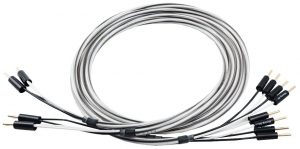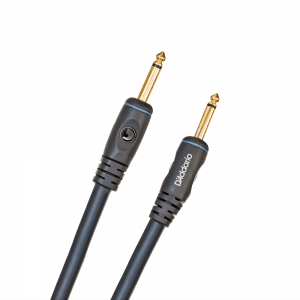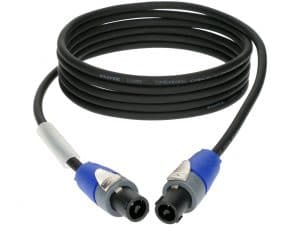Speaker cables are a core item to setting a new sound system. Without using decent speaker cable, the speakers and amplifiers have massive amounts of untapped music quality. However, many higher end cables overestimate the difference in sound quality a system can achieve just by adding a high quality cable. Many higher end metals that are used for sound cable do not conduct as well as copper. Thus, the higher price actually results in inferior sound quality. When picking a speaker cable it is important to choose a cable that makes the most of the sound system without throwing money away on unnecessary features.

Speaker Cable Materials
Table of Contents
Copper is a great choice for material when picking a cable for a sound system. Other metals make satisfactory speaker cable, but few conduct electricity as well as copper does. As a result, material is not a high priority concern when picking a speaker cable. Silver wire only rarely offers any additional quality over copper cable, but the price is nevertheless significantly higher. In addition, ignoring material as a concern when picking a speaker cable makes choices more flexible, ensuring that the final choice has all of the other, more crucial features for a more affordable price tag.
Cable Length
While it is typically only a concern in larger sound system, cable length is an important factor in cable choice. The most important aspect of cable length is ensuring that the cable on all primary speakers is approximately the same length. Varying length creates minor differences in the quality of the output from those speakers due to the longer wire creating more resistance. Users can solve this problem by using higher end amplification, or just by double-checking the length of the cable on all primary speakers.

Second, longer cable creates more resistance along its length. More resistance means more distortion in output and generally lower quality of sound from the sound system. This problem is easy to fix, however, due to thicker wire reducing the resistance of a sound system. Thats why, users should keep cable length in mind when deciding what cable gauge to use. For systems that require a lot of speaker wire, thick cable is essential. For smaller systems, thick wire does not harm the sound quality, but it is an unnecessary expenditure that limits potential cable choices at little benefit.
Speaker Cable Connectors
In most cases spade connectors are the most viable choice for what type of connector to use for a sound system. However, not all speakers are compatible with spade connectors and looking specifically for spade connectors can greatly complicate the search for the perfect sound cable. Bare wire connections are a poor choice for most system. The longer a bare wire connection is used, the more the cable risks fraying. A frayed cable wire is a fast track to a short circuit, which can potentially ruin a sound system. Pin and banana plug connections are not quite as stable or compatible as spade connections, but they both can create a solid connection and are compatible with most higher end speakers.

The type of connectors needed for a speaker system depends on what type of wire terminals the system uses. A spring clip terminal can connect to bare wire or pin connectors. Keep in mind when setting up a spring clip system that bare wire connections have a high risk of short circuit. Making pin connectors essentially a requirement for a spring clip terminal. The other type of terminal is a binding post terminal, which is compatible with banana plugs and spade connectors. Binding post terminal connections are generally more stable than spring clip terminal connections. Since spring clip terminals have a habit of losing their grip on cables over time.

Leave a Reply
You must be logged in to post a comment.